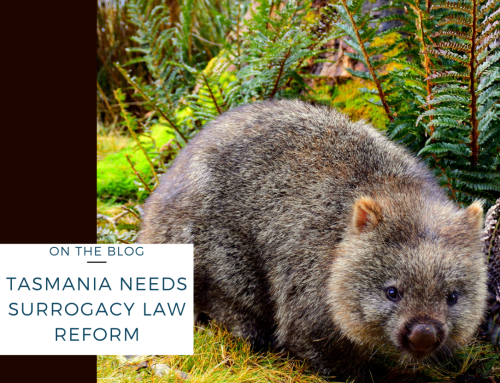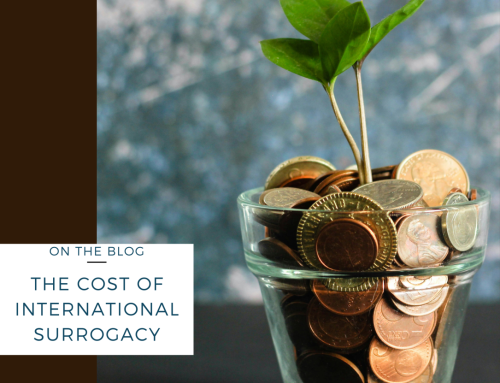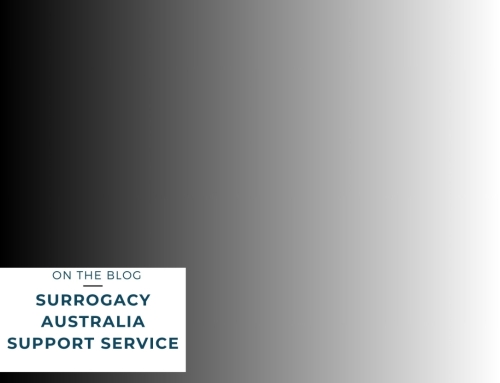The cost of altruistic surrogacy often drowns out the conversation about how to make sure a surrogate is not out of pocket.
If you are wondering how much surrogacy costs in Australia, you can read this post. And even better, you can check out this list of surrogacy costs, and download the template guide for your team to complete.
If you are new to surrogacy, you can read about how to find a surrogate, or how to become a surrogate yourself. You can also download the free Surrogacy Handbook which explains the processes and options.
It is a fact universally known, that Australian surrogates don’t like to talk about money. We don’t like asking for money, and we’d rather spend our own money than burden our intended parents. We feel that any talk about money can undermine the altruism of the gift that we’re giving. And let’s be honest, no one really likes talking about money. But in surrogacy arrangements, you kind of have to grin and bear it, because you have to talk about money at some stage.
The number one rule of surrogacy is: the surrogate should never be out of pocket. Altruistic surrogacy does not mean free. Surrogates are already putting themselves and their family’s well-being at risk by carrying a baby for someone else – they shouldn’t be financially worse off for doing it. Whilst there are legal frameworks for what expenses should be covered, the rule of thumb should be that if it’s surrogacy, pregnancy or birth-related, the intended parents should be covering it. If it’s an expense that the surrogate wouldn’t have incurred if she weren’t pregnant with someone else’s baby, then the intended parents should be covering it.
So how do you have the conversation if she won’t talk about it? Well, in some ways you need to take it out of her hands. Make it as easy as possible for her, and make sure she’s never out of pocket. The easiest and least stressful option to ensure surrogates are not out of pocket is not to reimburse them after she’s paid for something, but to provide her with access to funds ahead of time. Many teams find the easiest way to manage expenses is to provide the surrogate with a bank card with direct access to the intended parents’ bank account. This way, the surrogate can use the card for expenses, there’s no need for reimbursing after she’s spent her own money, and there’s a record in the intended parents’ bank account of any expenses she’s incurred.
As for the tough conversations about what everyone agrees is to be covered and how much, these are best had as a team, and both in and out of counselling. Don’t rely on the counselling to cover it all – utilise the counselling as a starting place for ongoing conversations. Recognise that it’s awkward. And in particular, recognise that the surrogate is likely to minimise her needs and will likely say “it’s fine” and “don’t worry about it.” The intended parents need to be proactive about money – don’t wait for the surrogate to ask for money or request a certain expense. The chances are, if she wants a new maternity bra, she’ll spend her own money to buy it. The intended parents need to be assertive enough to insist that she spend their money on those expenses, and not take no for an answer.
The surrogate’s partners can also play a role in the money conversation. They’re one step removed from the pregnancy, and might find it easier to have hard conversations with the intended parents about expenses. The surrogate doesn’t want her altruism undermined by money conversations, whilst her partner can make sure there’s money secured for a cleaner, and that her request for maternity clothing is met. She can then feel comfort knowing that the conversations are being had, but that she can focus on herself and the baby.
Here’s my 5 tips to ensure money doesn’t kill the relationship:
- Have pre-conception agreements about how money stuff should be dealt with.
- Have a linked card for the surrogate to utilise to pay bills etc so she doesn’t have to ask for money or reimbursement.
- Nominate a communication avenue to discuss money. Have it in writing, email or text, to avoid confusion.
- Nominate a spokesperson from each team to discuss money.
- Keep it unemotional and business-like.
You might like some tips for how best to support your surrogate and her family, and even some ideas for Care Packages.
We should introduce regulation of surrogacy matching services and have independent surrogacy escrow companies in Australia.
You can also purchase my book, More Than Just a Baby: A Guide to Surrogacy for Intended Parents and Surrogates.
If you are new to surrogacy, you can read about how to find a surrogate, or how to become a surrogate yourself. You can also download the free Surrogacy Handbook which explains the processes and options.
Looking for a surrogate and not sure where to start? We Need a Surrogate – What’s Next? And if you have a surrogate or intended parents, you can get started on the surrogacy process.
You can read a broad overview for surrogacy in Australia and how it works.
You can also book in for a consult with me below, and check out the legal services I provide.








